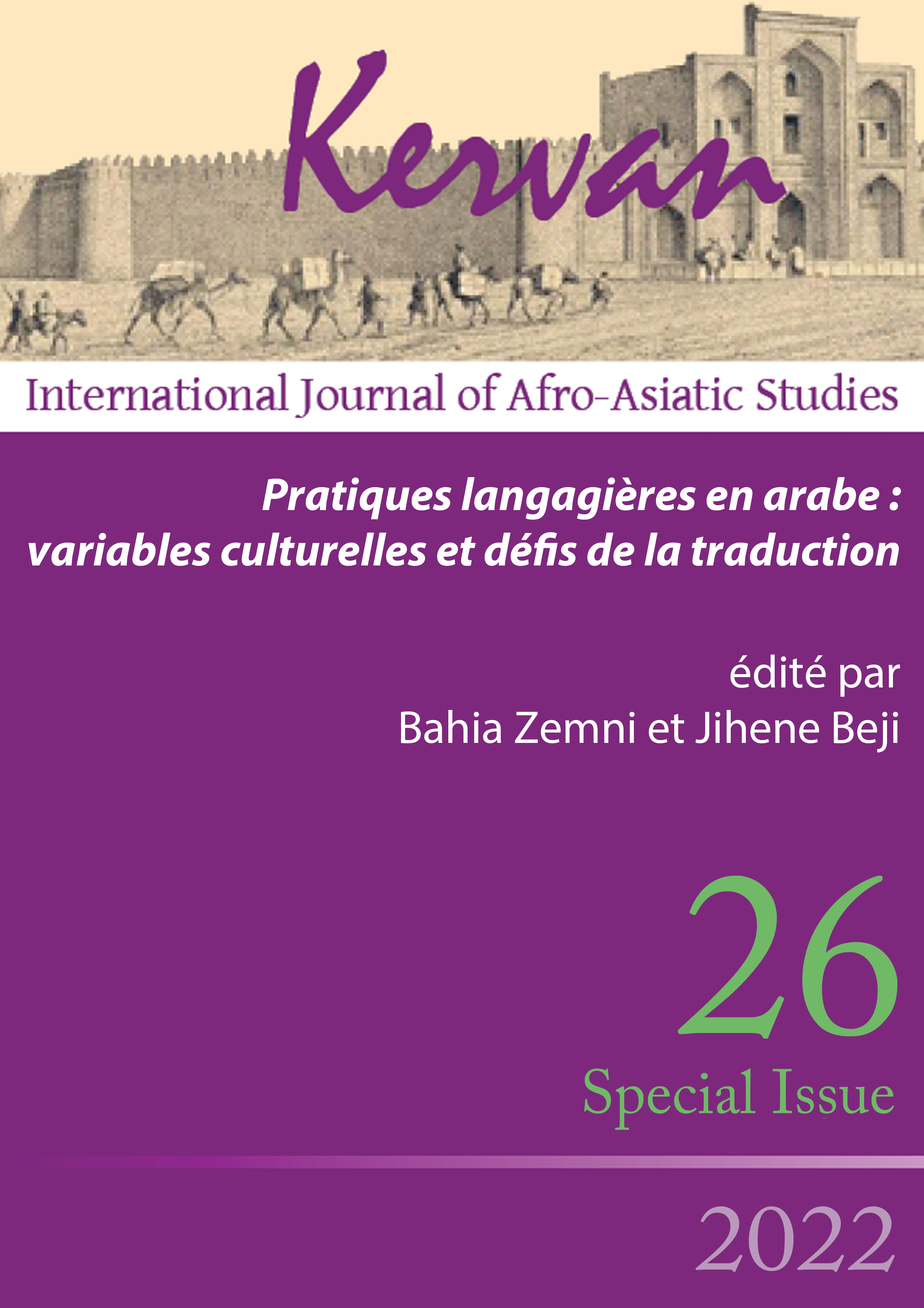Appellatifs et relations interpersonnelles en arabe saoudien et tunisien: variations culturelles
Abstract
Appellatives, terms of address used when “calling” someone, can take the form of proper names or common names that designate an individual or a group and are often loaded with meaning. They can be positive or disparaging, affectionate or “disaffected,” respectful or disrespectful, friendly or unfriendly. However, their use (both in the Saudi and Tunisian dialects) is neither innocent nor fortuitous: it is linked to a speaker’s communicative intention and underpinned by an aim. Therefore, use of appellatives can have an impact on the interlocutor and on interpersonal relationships.


 The articles that have appeared on Kervan since 2016 are rated as Class A in the system of National Scientific Qualification (ASN, disciplines 10/N1 and 10/N3).
The articles that have appeared on Kervan since 2016 are rated as Class A in the system of National Scientific Qualification (ASN, disciplines 10/N1 and 10/N3). The journal has been approved for inclusion in DOAJ. The DOAJ listing of the journal is available at
The journal has been approved for inclusion in DOAJ. The DOAJ listing of the journal is available at  The journal has been approved for inclusion in ERIH PLUS. The ERIH PLUS listing of the journal is available at
The journal has been approved for inclusion in ERIH PLUS. The ERIH PLUS listing of the journal is available at  Kervan was just accepted for indexing in SCOPUS. This important milestone ensures that articles published in Kervan are easily found when searching for library, archives and Information science and it enables Kervan authors to keep track of how often their article has been cited by others.
Kervan was just accepted for indexing in SCOPUS. This important milestone ensures that articles published in Kervan are easily found when searching for library, archives and Information science and it enables Kervan authors to keep track of how often their article has been cited by others.
